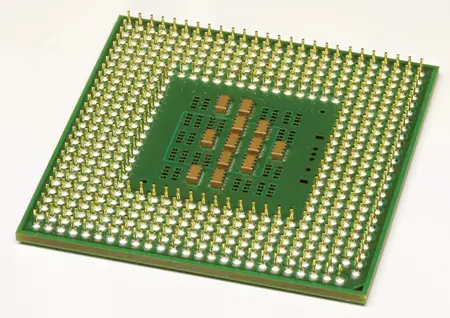
There are processors of various sizes available. What is the use of a processor with a bigger size? Does it have any advantages? (Compare a 32-bit and 64-bit processor)
The Effects Of A Large Processor Size

Hi
As the processor size increases, so does its advantages. One difference between a 32-bit chip and a 64-bit chip is that a 64bit chip can fetch instructions at a faster rate per clock cycle compared to a 32bit chip. Hence, performing more number of tasks in a short period. Another difference is that a 64-bit chip can more support more amount of random-access memory (RAM). The 64bit processor makes managing large data sets or handling extremely complex graphics very easy.
The Effects Of A Large Processor Size

The two types of processors are 32-bit and 64-bit. 32-bit is often referred to as x86 while 64-bit is often referred to as x64. The type of processor that a computer uses not only affects its overall performance but also dictates the type of software it uses.
If a computer is installed with a 32-bit processor, the operating system that can be installed is limited only to 32-bit as well as the applications that can be installed. If a computer is installed with a 64-bit processor, the operating system that can be installed can be either 32-bit or 64-bit. If the operating system installed is 64-bit, you can install either 32-bit or 64-bit applications.

But if you have a 64-bit processor and you installed a 32-bit operating system, the processor will not run at its full capacity. Before you can use a 64-bit processor, your motherboard has to be 64-bit first. The 32-bit processor was the primary or chief processor used in every computer until the early 1990s. Examples of 32-bit processors are Intel Pentium and early AMD processors.
Operating systems like Windows 95, Windows 98, Windows Millennium, and Windows XP are all 32-bit and were common on computers with 32-bit processors. The 64-bit processor has been around since 1961 when IBM built the IBM 7030 Stretch supercomputer. On the other hand, it was not made available for public use until early 2000s. The 64-bit version of Windows XP was released by Microsoft for computers with 64-bit processor.
Operating systems such as Windows Vista, Windows 7, and Windows 8 have 64-bit versions.














